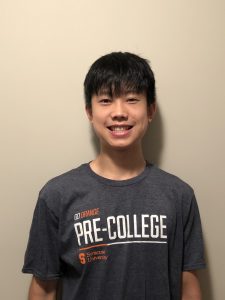Course Overview
Fundamental coursework on the standards and practices for collecting, organizing, managing, exploring, and using data. Topics covered prepare you to solve problems involving data, which includes preparation (collection and integration), characterization and presentation (information visualization), analysis (machine learning and data mining), and products (applications). A major component will be learning these topics using R-based programming tools to real-life datasets. On completion you will be equipped with skills to analyze and derive insights from complex datasets.
All students who successfully complete the course will receive a Certificate of Completion and have the opportunity to request a Syracuse University noncredit transcript.
Learning Objectives
At the end of the course, students will be able to:
- Perform basic computational scripting using R and other programs.
- Develop an appreciation for what is involved in learning models from data.
- Understand how to evaluate models generated from data.
- Understand the basics of machine learning.
- Apply algorithms to real problems, optimize models learned and report on expected accuracy.
Course Information
Course Prefix and Number: SCN 088
Format: On-Campus
Eligibility: Students must be of rising high school sophomore, junior, or senior status – or a 2026 high school graduate.
Credit: Noncredit
Grading: Pass/Fail
Cost:
- Residential: $4,995
- Commuter: $4,024
Program rates are subject to change and will be approved by the board of trustees. Discounts and scholarships are also available.
Program Information
Summer College – On Campus: Experience what college is really like: take a college-level course, live in a residence hall, have meals with friends in a dining hall, and participate in activities and events on campus.

Hopping onto the computer every day for six weeks for the Syracuse University Summer College felt nothing like the virtual school I had been waking up for during the previous school year. Time passed in a blink of an eye as I figured out how to manipulate data to tell stories of their importance and correlation with real-world events.”
— Nicholas C., Summer College – Online Student, 2021.
Course Dates and Details
| Program | Course Dates | Synchronous Class Time (Eastern Time) | Credit/Noncredit |
|---|---|---|---|
| Summer College – On Campus | 2-Week Session I: Sunday, July 5 – Friday, July 17, 2026 | MTWThF; 9 a.m. – 5 p.m. | Noncredit |
To see if this course is ‘open,’ refer to the full course catalog.
Course Requirements
Required Supplies
Please know that any supply purchases are not included in the overall tuition fee. Students will need to budget for additional course supplies, textbooks, supply kits, etc.
- Students must bring their own laptops.
Textbook:
- An Introduction to Data Science Jeffrey S. Saltz – Syracuse University, USA Jeffrey M. Stanton – Syracuse University, USA ISBN-10 : 150637753X ISBN-13 : 978-1506377537
Typical Day
Tentative Schedule – TBD
When class is over, and on weekends, students can look forward to various Summer College – On Campus activities to meet and connect with other students! Check out our On Campus Experience page for more information!
Faculty Bios
Angela Usha Ramnarine-Rieks, Ph.D.

Angela Usha Ramnarine-Rieks teaches courses related data and content management, programming, and change management at the School of Information Studies at Syracuse University. As a researcher, she has a keen interest in understanding the implications in the adoption and adaptation of new technologies. Ramnarine-Rieks is currently part of a research team exploring the socio-technical impacts of the smart grid phenomenon in the energy industry. Exposure to this domain began with postdoctoral work with the smart grid research team at Syracuse University. Her other research track explores integrating computational thinking into literacy. Yes, that means she supports the premise that all should learn to code.
